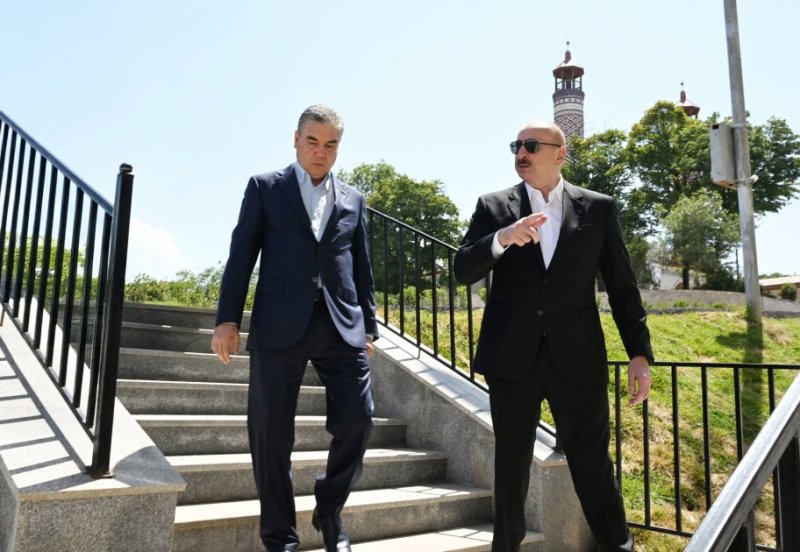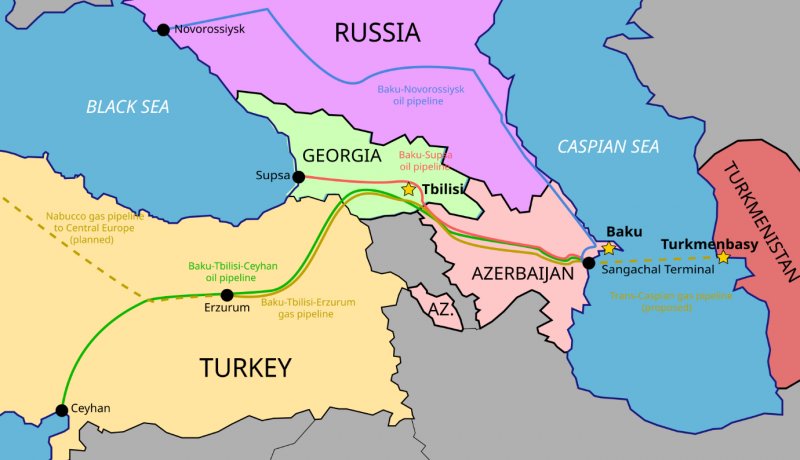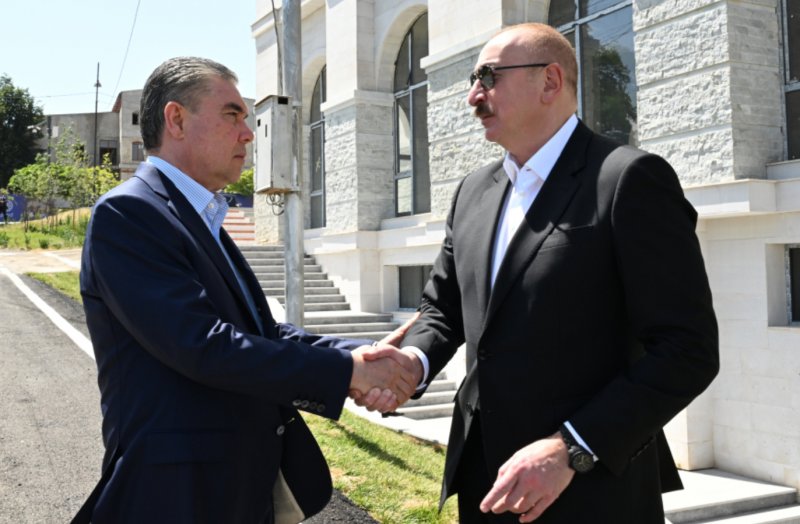The recent visit of Gurbanguly Berdimuhamedov, National Leader of the Turkmen People and Chairman of the Halk Maslahaty, to Azerbaijan on July 16–17 may not have produced any signed agreements, but it carried a weight of strategic symbolism that cannot be overlooked. In many ways, this was a visit less about documents and more about direction — and that direction, unmistakably, points toward closer alignment between Ashgabat and Baku.
For two days, Berdimuhamedov and Azerbaijani President Ilham Aliyev engaged in wide-ranging discussions, explored the dimensions of cooperation, and set the tone for a new chapter in bilateral relations. From formal receptions and informal visits to the Sea Breeze resort to a high-profile trip to Karabakh — where Berdimuhamedov was gifted a Karabakh horse named Dostlug (“friendship”) — the message was clear: Turkmenistan is ready to reengage, and Azerbaijan is receptive.

President Ilham Aliyev and Gurbanguly Berdimuhamedov had joint dinner in Shusha/AZERTAC
This warming of ties comes after a historically turbulent past. In the post-Soviet 1990s, the two countries found themselves locked in a dispute over an offshore oil field in the Caspian Sea, discovered by Azerbaijani geologists in the 1980s. What Azerbaijan called Kyapaz and Turkmenistan referred to as Sardar (originally named Aralyk, meaning “middle”) became a geopolitical flashpoint. Years of deadlock followed. It was only in 2021 that the two sides finally signed a Memorandum of Understanding to jointly explore and develop the field, rebranding it — aptly — as Dostlug.
So what has changed? Quite simply, Turkmenistan needs to step out of the shadows. The Berdimuhamedov era has not ended with his presidential resignation in 2022 — far from it. The former president still pulls the levers of power, directs strategic policies, and represents the country abroad. His influence over foreign policy — especially toward Russia, China, and now, increasingly, Azerbaijan and Central Asia — remains paramount.
His recent regional tour through Kazakhstan, Uzbekistan, and Kyrgyzstan emphasized not just diplomacy, but cultural and historical affinity. His symbolic choice to visit Turkistan, the spiritual heart of the Turkic world, rather than Kazakhstan’s capital, was no accident. It was a statement of belonging — and ambition.
That ambition is now shifting westward, toward Azerbaijan and the European energy market.
The Trans-Caspian Gas Pipeline — long a dream, frequently derailed — is back in serious discussion. With Russia entangled in geopolitical quagmires and Iran weakened by domestic turmoil and international sanctions, the two main opponents of the project have lost their grip. A once-impossible idea now feels plausible, even necessary.

The Trans/Caspian gas pipeline/Wikipedia
The stakes are enormous. With the EU scrambling for alternatives to Russian gas, and the U.S. explicitly endorsing a Turkmenistan–Azerbaijan–Europe pipeline (as stated by U.S. Senator Marco Rubio this May), the timing has never been better.
But hurdles remain — most notably, funding. Even at a reduced scale, the project could cost $400–600 million if implemented as a connection between two offshore fields — Azerbaijan’s Azeri–Chirag–Guneshli and Turkmenistan’s Banka Livanova. That is, perhaps, a small price to pay for geopolitical relevance and economic diversification.
Let’s not forget: Turkmenistan spent nearly $5 billion building the city of Arkadag. Financing a strategic gas link should be well within its means — assuming the political will is matched by action.
Berdimuhamedov’s visit was not a routine diplomatic courtesy. It was a calculated signal — a demonstration of Turkmenistan’s intent to reposition itself on the regional chessboard and to forge a future that is no longer defined solely by ties to Russia or dependence on China. By deepening cooperation with Azerbaijan, Ashgabat is aligning with a country that has successfully leveraged its geography and resources to become a vital energy corridor between East and West.
The implications go far beyond energy. This partnership has the potential to reshape the geopolitical dynamics of the Caspian basin and create new patterns of interdependence across Eurasia. A successful Trans-Caspian gas link would not only diversify Turkmenistan’s export routes but also enhance Europe’s energy security, strengthen Azerbaijan’s role as a regional energy hub, and send a clear message that the Caspian is open for strategic cooperation — on Turkmenistan’s terms.
The question now is whether Europe — and especially Brussels — will respond in kind. Because if it does, the Caspian Sea might finally become more than a geographic boundary. It could emerge as a strategic bridge — linking not just energy infrastructure, but political interests, economic opportunity, and a shared vision of connectivity across a fractured continent. For Turkmenistan, this is not merely a pipeline. It is a path toward relevance, resilience, and renewal.
By Asif Aydinly
